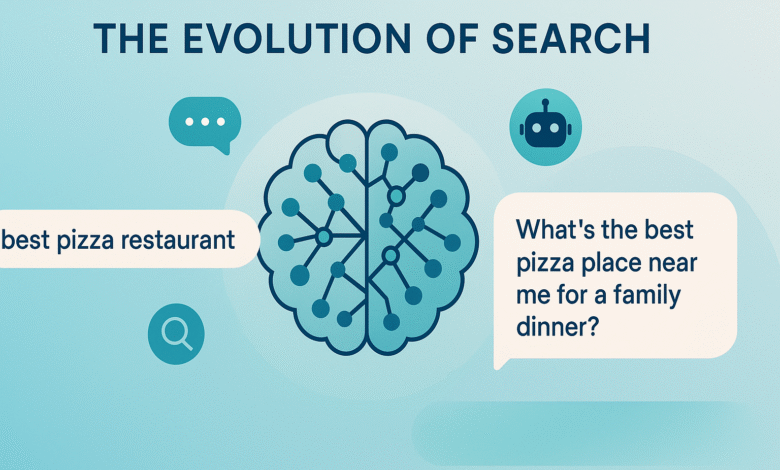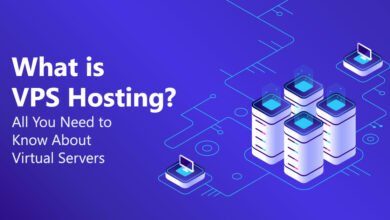How to Optimize for AI Search Engines Like ChatGPT
Discover how to optimize for AI search engines like ChatGPT & Claude. Complete SEO guide with actionable tips to boost your content visibility.

The way people search for information is changing fast. Instead of typing keywords into Google, millions of users now ask questions directly to ChatGPT, Claude, Perplexity, and other AI tools. These AI search engines pull information from across the web to give detailed, conversational answers.
If your content isn’t optimized for AI search engines, you’re missing out on a massive and growing audience. Traditional SEO tactics won’t cut it anymore. You need strategies specifically designed for how AI systems find, understand, and recommend content.
In this guide, you’ll learn exactly how to optimize your website for AI search engines. I’ll walk you through proven techniques to make your content more discoverable, trustworthy, and valuable to both AI systems and the people using them.
To optimize for AI search engines, focus on creating comprehensive, well-structured content that directly answers questions. Use clear headings, include relevant data and sources, optimize for featured snippets, and ensure your content is factually accurate and up-to-date.
What is AI Search SEO?
AI Search SEO is the practice of optimizing your website and content to rank well in AI-powered search engines and tools like ChatGPT, Claude, Perplexity, Bard, and Bing Chat. Unlike traditional search engines that show a list of links, AI search tools analyze content across the web and synthesize information into direct, conversational answers.
When someone asks an AI tool a question, it scans millions of web pages to find the most relevant and reliable information. The content that gets selected becomes part of the AI’s response, often with attribution back to the original source.
Why is AI Search SEO Important?
The numbers tell the story. ChatGPT reached 100 million users in just two months, making it the fastest-growing consumer application in history. Perplexity handles over 500 million searches per month. Bing Chat integration has increased Microsoft’s search market share for the first time in years.
Here’s why optimizing for AI search matters for your business:
- Massive audience growth: AI search tools are adding millions of new users every month
- Higher-quality traffic: People using AI search tend to ask more specific, intent-driven questions
- Enhanced credibility: Being cited by AI tools positions your brand as an authoritative source
- Future-proofing: AI integration into traditional search engines is accelerating
- Competitive advantage: Most businesses haven’t started optimizing for AI search yet
A recent study found that websites mentioned in AI search results saw an average 34% increase in organic traffic within six months. Early adopters are already seeing significant benefits.
How to Do SEO for AI Search (Step-by-Step)
1. Create Question-Focused Content
AI search users ask direct questions rather than typing keywords. Restructure your content to match this behavior.
Start each piece of content by identifying the main question you’re answering. Then organize your information to provide a clear, comprehensive response. Use question-based headings like “How does X work?” or “What are the benefits of Y?”
2. Write Comprehensive, In-Depth Answers
AI systems favor content that thoroughly covers a topic. Shallow, keyword-stuffed articles won’t make the cut.
Aim for at least 1,500-2,000 words for main topic pages. Cover all aspects of your subject, including background information, step-by-step processes, benefits, drawbacks, and related concepts. The goal is to be the single best resource on your topic.
3. Use Clear, Logical Structure
AI tools need to quickly understand and extract information from your content. Poor structure makes this difficult.
Use descriptive headings (H1, H2, H3) that clearly indicate what each section covers. Create logical information hierarchy. Include numbered lists, bullet points, and tables where appropriate. Add a table of contents for longer articles.
4. Include Data, Statistics, and Sources
AI systems prioritize factual accuracy and rely heavily on credible sources and supporting data.
Back up your claims with specific statistics, research studies, and expert quotes. Link to authoritative sources like government websites, academic institutions, and industry reports. Include publication dates for all referenced data to show recency.
Also Read: How to Optimize Your Website for SEO
5. Optimize for Featured Snippets
Many AI tools pull information from Google’s featured snippets, making this optimization doubly important.
Format content to directly answer common questions in 40-60 words. Use definition lists, numbered steps, and comparison tables. Start answers with the most important information first.
6. Focus on E-A-T (Expertise, Authoritativeness, Trustworthiness)
AI systems are trained to identify and prefer content from reliable sources.
Include detailed author bios with relevant credentials. Add “About Us” pages that establish your expertise. Get mentions and links from other authoritative websites in your industry. Display clear contact information and privacy policies.
7. Keep Content Fresh and Updated
AI tools prioritize recent, accurate information over outdated content.
Regularly update existing articles with new information, statistics, and examples. Add publication and “last updated” dates to all content. Monitor your industry for changes that might affect your content’s accuracy.
8. Use Natural Language and Conversational Tone
AI search users interact conversationally, and AI systems are trained on natural language patterns.
Write like you’re explaining concepts to a knowledgeable friend. Use complete sentences and natural phrasing. Avoid excessive jargon or overly formal language. Include conversational transitions between ideas.
9. Implement Schema Markup
Structured data helps AI systems understand your content’s context and meaning.
Add relevant schema markup for articles, FAQs, how-to guides, and other content types. Use schema for author information, publication dates, and organization details. Test your markup with Google’s Rich Results Test tool.
10. Build Topic Clusters
AI systems understand relationships between related content pieces.
Create comprehensive coverage of your main topics by linking related articles together. Develop pillar pages that cover broad topics, supported by cluster pages that dive deep into specific subtopics. Use internal linking to show content relationships.
Common Mistakes to Avoid
- Keyword stuffing: AI tools can detect and penalize unnatural keyword usage
- Thin content: Surface-level articles won’t compete with comprehensive resources
- Outdated information: AI systems prioritize recent, accurate data
- Poor source citation: Failing to link to credible sources hurts trustworthiness
- Ignoring mobile optimization: Many AI searches happen on mobile devices
- Overlooking page speed: Slow sites may not get crawled as effectively by AI systems
Tools You Can Use
Perplexity Pro: Research how AI systems currently answer questions in your industry. See which sources they cite most often.
AnswerThePublic: Find question-based keywords that people are asking about your topics. Perfect for creating AI-optimized content.
ChatGPT: Test how well AI systems understand and can extract information from your existing content. Ask it questions about your topic and see what sources it references.
Google Search Console: Monitor which of your pages appear in featured snippets, as these often feed into AI search results.
Screaming Frog: Audit your site’s technical SEO elements that affect how AI systems crawl and understand your content.
AI Search vs Traditional Search: Key Differences
| Aspect | Traditional Search | AI Search |
|---|---|---|
| User behavior | Keyword-based queries | Conversational questions |
| Results format | List of links | Direct answers with sources |
| Content preference | Keyword-optimized pages | Comprehensive, factual content |
| Success metric | Click-through rate | Information accuracy and completeness |
| Optimization focus | Keywords and backlinks | E-A-T and content depth |
Frequently Asked Questions
What’s the difference between AI search and voice search optimization?
While both involve natural language queries, AI search encompasses text-based conversations with AI tools, not just voice commands. AI search also provides detailed, sourced answers rather than simple responses.
Do I need to completely rewrite my existing content for AI search?
Not necessarily. Start by updating your best-performing content with better structure, more comprehensive information, and proper source citations. Focus on quality improvements rather than complete rewrites.
How do I know if my content is being used by AI search engines?
Monitor your website’s referral traffic for visits from AI platforms. You can also search for your topic in various AI tools to see if your content gets cited. Some AI tools provide source attribution when they reference your content.
Should I still focus on traditional SEO if I’m optimizing for AI search?
Yes, absolutely. Traditional SEO fundamentals like technical optimization, site speed, and mobile-friendliness remain important. AI search optimization builds on these foundations rather than replacing them.
How often should I update my content for AI search?
Review and update your main content pieces every 3-6 months, or whenever significant industry changes occur. For rapidly evolving topics, monthly updates may be necessary to maintain AI search visibility.
Can small businesses compete with large companies in AI search?
Yes, even more so than in traditional search. AI systems prioritize content quality and accuracy over domain authority. A well-researched, comprehensive article from a small business can outperform shallow content from larger competitors.
What types of content perform best in AI search results?
How-to guides, detailed explanations of complex topics, comparison articles, and comprehensive resource lists tend to perform well. Content that directly answers specific questions with supporting evidence gets the most AI search visibility.
Conclusion
Optimizing for AI search isn’t about abandoning everything you know about SEO. It’s about evolving your content strategy to match how people actually interact with information today. The businesses that start optimizing for AI search now will have a significant advantage as this technology becomes even more mainstream.
Focus on creating genuinely helpful, comprehensive content that directly answers your audience’s questions. Back up your information with credible sources, structure it clearly, and keep it updated. These fundamentals will serve you well regardless of how search technology continues to evolve.
The future of search is conversational, and the future is happening now. Start optimizing your content for AI search today, and you’ll be ready to capture this growing audience tomorrow.
Ready to get started? Begin by auditing your top-performing content and identifying opportunities to make it more comprehensive and question-focused. The effort you put in now will pay dividends as AI search continues to grow.











